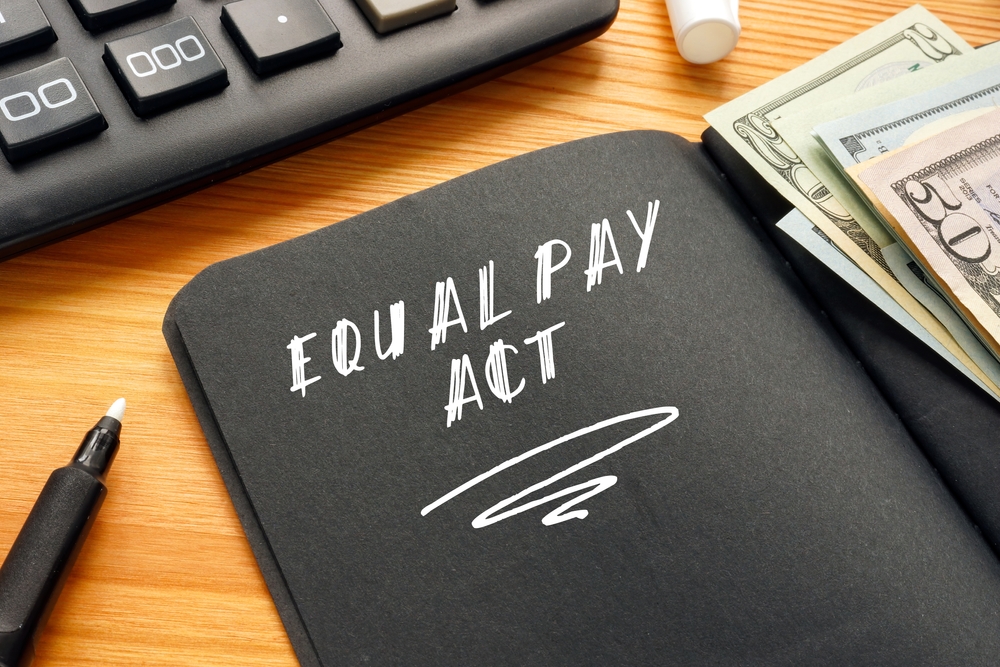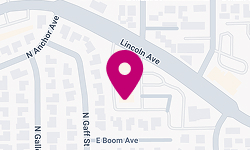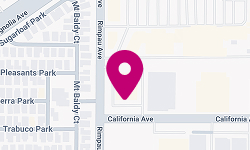- Free Consultation: (888) 883-6588 Tap Here To Call Us
Equal Pay Act Claims in California

Understanding How “Pay Inequality” Affects California Workers
As a California employment attorney, I’ve worked with many individuals—especially women—who’ve come to me after discovering they’re being paid less than a colleague for doing essentially the same work. Often, it’s not just about the numbers on a paycheck. It’s about the message that unequal compensation sends, particularly when it reflects deep-rooted gender bias in the workplace. If you’re performing substantially similar work as someone else but receiving less compensation, the law is on your side. You don’t have to tolerate it—and you don’t have to stay silent about it.
Both federal and California state laws prohibit wage discrimination based on sex. The Equal Pay Act of 1963 and California’s Fair Pay Act exist to give employees legal recourse when they’re being unfairly paid. However, asserting your rights requires a clear understanding of what qualifies as an Equal Pay Act violation, what steps to take, and how to document wage discrepancies effectively. I’m here to walk you through what to know and what to do if you believe you’ve been paid unfairly.
How The Federal Equal Pay Act Works
The federal Equal Pay Act of 1963 prohibits employers from paying employees of one sex less than employees of the opposite sex for equal work performed under similar working conditions within the same establishment. “Equal work” doesn’t mean the jobs need to be identical—but they must be substantially equal in skill, effort, and responsibility.
To improve your chances of winning an Equal Pay Act claim, you must prove:
- The employer pays different wages to employees of opposite sexes;
- The employees perform substantially equal work;
- The jobs are performed under similar conditions in the same workplace.
If those elements are met, the burden then shifts to the employer to prove that the pay disparity is based on a legitimate factor other than sex—such as seniority, merit, quantity or quality of production, or any other factor not based on gender.
How California Law Provides Even Broader Protection
In California, the protections against unequal pay go further than federal law. Under California Labor Code § 1197.5, often referred to as the California Fair Pay Act, an employer may not pay an employee less than a coworker of the opposite sex or of another race or ethnicity for substantially similar work. California’s version of the law does not require the employees to work in the same establishment. It also places the burden on the employer to demonstrate that any wage differential is entirely based on a lawful factor such as:
- A seniority system;
- A merit system;
- A system that measures earnings by quantity or quality of production;
- A bona fide factor other than sex, race, or ethnicity (like education, training, or experience).
However, that factor must be applied reasonably, account for the entire wage difference, and be job-related and consistent with business necessity. Even then, if an alternative business practice exists that would serve the same purpose without resulting in a wage gap, the employer must use that method instead.
This makes California’s law one of the most employee-friendly pay equity statutes in the country.
Signs That You May Be Facing A Wage Disparity Issue
Unequal pay doesn’t always show up in obvious ways. Many of my clients discover the disparity accidentally—during casual conversations, performance reviews, or when preparing for a promotion. Here are some common red flags that may point to an Equal Pay Act violation:
- You discover a male colleague earns more for doing the same job;
- Your duties are equal or greater in complexity, yet your pay remains lower;
- You’re given similar titles but different compensation packages;
- Promotions or raises are regularly awarded to one gender despite similar performance;
- HR or management refuses to provide pay transparency when questioned.
If any of these sound familiar, it’s time to start documenting your observations and seek legal advice. These cases are time-sensitive and require careful preparation.
What To Do If You Suspect Unequal Pay
If you believe you are being paid less than a colleague based on gender, your first step is to gather information. This means collecting job descriptions, pay records, performance evaluations, and emails. If other employees are willing to confirm their pay structure or responsibilities, their testimony may also be helpful.
You should also keep records of how your job responsibilities compare to those of higher-paid colleagues. If you do more work, have more qualifications, or carry more responsibility and are still earning less, this could be strong evidence of discrimination.
Under California Labor Code § 1197.5(k)(1), employees have the right to discuss their wages and inquire about coworkers’ pay without retaliation. Employers may not legally prohibit or punish workers for talking about compensation.
Once you have documentation in place, consider submitting a written complaint internally. If the issue isn’t resolved or you experience retaliation, legal action may be the next step. You can file a claim with the California Civil Rights Department (CRD) or the Equal Employment Opportunity Commission (EEOC) for federal claims. As your attorney, I can also help you evaluate whether a private lawsuit is appropriate.
Remedies Available In Equal Pay Act Claims
Employees who win an Equal Pay Act claim may be entitled to:
- Back pay for lost wages;
- An equalizing pay increase;
- Liquidated damages (double the amount of back pay) under federal law;
- Interest on unpaid wages;
- Attorney’s fees and court costs.
Under California law, employees may also recover wage differentials, interest, and an equal amount as liquidated damages under Labor Code § 1197.5(g). In some cases, emotional distress and punitive damages may be available, especially when tied to retaliation.
Employers found in violation may also be required to revise their policies, adjust compensation structures, and issue public statements or corrective actions to prevent future violations.
FAQs About Equal Pay Act Claims In California
What Counts As “Substantially Similar” Work Under The Equal Pay Act?
Substantially similar work refers to work that is alike in skill, effort, and responsibility and is performed under similar working conditions. Job titles alone don’t determine this—courts look at the actual duties performed.
Can I Legally Ask My Coworkers What They Earn?
Yes. Under California Labor Code § 1197.5(k)(1), your employer cannot prohibit or retaliate against you for discussing wages or seeking wage information from coworkers.
Do I Have To File An Internal Complaint Before Suing?
Not necessarily. While it’s often useful to file an internal complaint
with HR to create a paper trail, you may still file a claim directly with the CRD or EEOC or pursue a private legal action.
What If I’m Being Paid Less Because I Didn’t Negotiate As Aggressively?
Negotiation outcomes alone are not a valid defense if the result is a wage gap based on gender. Courts will evaluate whether the employer’s pay practices are justified by business-related factors unrelated to gender.
Is There A Deadline To File A Claim?
Yes. Under California law, you generally have two years from the date of the violation to file a wage claim—or three years if the violation was willful. Under federal law, the statute of limitations is similar.
What Happens If My Employer Retaliates After I File A Claim?
Both California and federal laws prohibit retaliation against employees for asserting their rights under the Equal Pay Act. If you are fired, demoted, or otherwise punished, you may be entitled to additional damages for retaliation.
Does The Law Apply To Independent Contractors?
No. The Equal Pay Act and California’s Fair Pay Act apply to employees, not independent contractors. However, some misclassified workers may still have a claim if they were improperly labeled as contractors when they were actually employees.
What Should I Bring To My First Meeting With A Lawyer?
Bring as much documentation as you can, including pay stubs, job descriptions, internal emails, employee handbooks, and any performance evaluations. The more information we have, the stronger acase will be.
Contact Law Office Of Joseph Richards, P.C. For Exceptional Representation
If you believe you’re being paid less than a colleague for the same work, you have legal rights—and you don’t have to stay quiet about it. Unequal pay is not just a financial issue. It’s a violation of your dignity and your legal rights under both California and federal law. I help workers like you stand up to unfair pay practices, hold employers accountable, and recover what they’re owed.
Let’s talk about your situation. You don’t have to do this alone.
Contact the Orange County wage discrimination attorney at Law Office of Joseph Richards, P.C. by calling (888) 883-6588 to receive your free consultation. We represent workers throughout California.
























